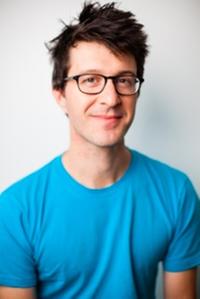 |
|
| photo: Victor G. Jeffreys II | |
Christian Rudder is cofounder and president of OkCupid and author of the popular blog OkTrends. He graduated from Harvard in 1998 with a degree in math and later served as creative director for SparkNotes. He has appeared on NBC's Dateline and NPR's All Things Considered, and his work has been written about in the New York Times, the New Yorker and other publications. He lives in Brooklyn, N.Y., with his wife and daughter.
Why is the data collected through websites like OkCupid, Facebook and Google more revealing than surveys or academic behavioral research? Why is the key how people behave when they think no one is watching?
These sites, for all their ruthless efficiency as businesses, are also social science field experiments of unprecedented size. And doing field experiments one better, the research is entirely open-ended, and the subjects don't even know they're taking part. All activity, along all vectors (sex, race, politics, etc.), is captured simultaneously.
As proof of the data's value, academics are gravitating to it. Facebook and Google both have created their own in-house research teams. I have professors and PhDs contacting me at OkCupid about our data at least once a week. Every behavioral science department in the country must have someone mining Twitter.
As for the "no one is watching" thing, that advantage is best laid out by considering the opposite extreme. Reality television is people at their most watched, and least realistic. Without an explicit observer, you can hope to get the person. Otherwise, you risk getting a performance instead.
Tell us about the process of shaping and writing Dataclysm. Given the wealth of information you had available, how did you narrow it down and decide what to include in the book?
Focusing the data and my arguments was difficult. The book is essentially about the "stuff people do," which as any Seinfeld fan will tell you, isn't really a topic in the traditional sense. In order for it to cohere, I left out a lot of interesting, but tangential, stories. What made it into the book was the data and the research that best exemplified my thesis: that we can know our hearts through data.
Despite hand-wringing by some about the effect of technology on our culture, you see the Internet as "a writer's world." What does the data show about the Internet and written communication?
In short, the data shows that written communication is adapting rather than going extinct. People are undoubtedly writing more than ever, and Twitter, for example, might've created new linguistic conventions, but the writing there isn't objectively worse. In fact, the average length of a word in a Tweet is longer than in other types of writing (even magazine-level journalism). This despite the notorious 140-character limit: less space requires that the writer use every character for meaning. What seems like a constraint doubles as an inspiration. People make do. Language, too.
Dataclysm is filled with fascinating insights on topics ranging from romance to race to politics. What did you uncover that most surprised you?
I get this question all the time, and I've yet to come up with a snappy answer. I wasn't really going for the counterintuitive Holy Grail mindfreak that many similar books have chased. A lot of Dataclysm confirms or simply adds depth to what we already suspect about human nature. But it does so with unique clarity and visibility. My wife and I go scuba-diving a couple of times a year, and I'll put it like this: when you go underwater, see the fish, the shells, the coral, even the sand, running it through your fingers at the bottom of the sea, it's all very beautiful, even moving. But I wouldn't say it's at all surprising--even sitting up on the boat, you know what's down there. The surprising thing, and I've often thought this to myself floating next to some fish, is that you're able to see any of it for yourself; swimming, watching, sifting, where people aren't supposed to be.
What would you like readers to take away from Dataclysm?
A sense of a world and a discipline that is only now unfolding. The data science I discuss (and practice) in the book is only a few years old. The book is much less a retrospective than a look forward. There are many holes left to fill and many questions I can only pose: answers aren't available yet. I wanted readers to feel the spaces and the unknown and the horizon, and wonder at the frontier. --Shannon McKenna Schmidt

